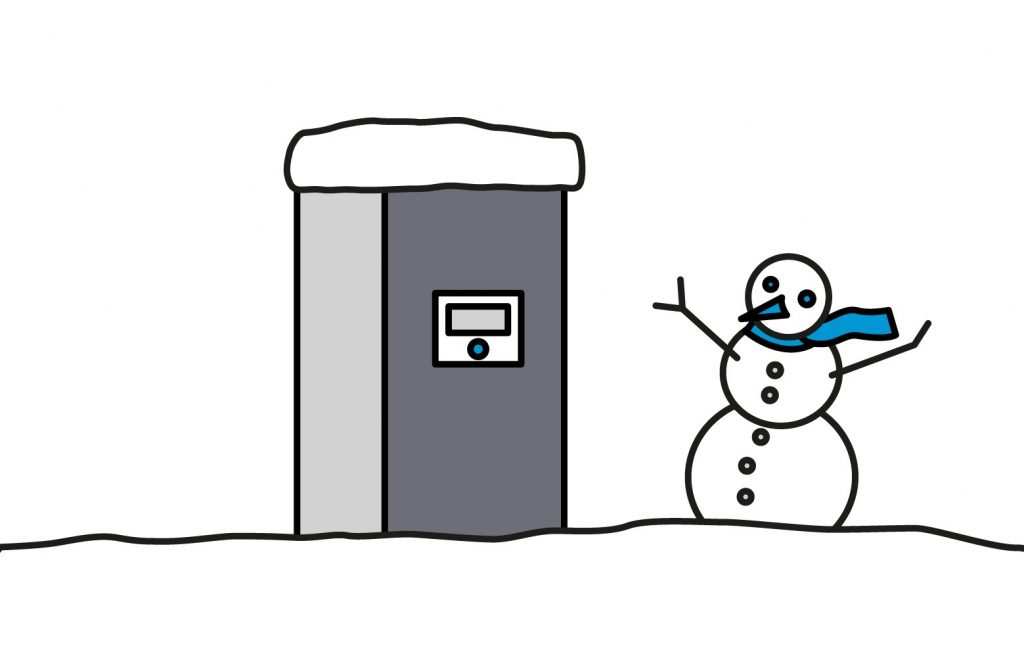NEWS: Protecting Your Air Compressors During Colder Weather
Air compressor maintenance. We know that is not likely to be the first item on your “to do list”, but protecting your air compressors during colder weather is critical. Without the necessary care, they could let you down at the most inconvenient of times. Here is a guide to keeping your air compressors working as they should when the temperature drops.
Protecting Your Air Compressors During Colder Weather
The first problem you could come up against at this time of year is with the condensation that comes from the compressed air itself. Whatever kind of air compressor system you use, it is really important to make sure that your cooling system has been treated. It is the same principle as a car: if you do not keep your antifreeze topped up, then the engine block is at risk of freezing. Frozen water does damage to air compressors too, as water expands as it freezes and can crack pipes as it does so. Make sure that drains and pipes that are exposed, especially any that run on the outside of your building, are properly insulated. This has the dual effect of preventing split pipes and also preventing water from getting into the air supply in the first place.
Another point to remember: if a compressor, oil-water separator or dryer is not being used and is left standing, it is a good idea to remove any cooling water that has not been treated as a preventative measure.

Consider a heat recovery system
As air compressors provide you with compressed air, they generate a lot of heat as a side effect. This heat is often recovered to be used elsewhere in a plant. You can recover as much as 90% of the heat that is produced so a heat recovery system can be used to produce (or balance the cost) of heat that is needed elsewhere.
Do not neglect your drains
When it comes to compressed air systems, condensate drains are often forgotten. The purpose of these drains is to release unwanted water – as an alternative to draining the machinery manually. There are two main types: timer and zero loss electronic drain valves. Time drains are popular, as they are easy to install and cost-effective to run – and very reliable. On the other hand, the intervals between drain cycles must be adjusted seasonally. Too short a cycle and too much condensate is retained, keeping it open too long means compressed air is wasted unnecessarily. The newer “No-waste” electronic drains are popular, as they do not release compressed air with the condensation and they can be maintained easily.
If you have a condensate drain on your compressed air system, then check it regularly for obstructions. They usually need to be rebuilt or replaced annually: and it’s best to do so before the cold weather sets in. Add this task to your routine maintenance schedule to prevent problems.
Maintain your air filters
Just like drains, filters are an afterthought for many owners of compressed air systems. They are crucial to maintaining air purity levels, and if they are blocked, they cannot effectively remove particles of dust, oil or liquid out of the compressed air. A blocked filter can also cause a pressure drop in the whole system which might increase your energy costs and eventually stop the system from working altogether. Another check for the annual maintenance schedule!
Repair leaks
Just because you cannot hear air coming from your air compressor’s piping system, does not mean there are no leaks. In older piping systems, air leaks can use as much as 25% of compressed air usage in a plant. Larger leaks are relatively easy to locate, but they arise from smaller ones. If you can identify and repair leaks sooner, then you will maximise your system’s efficiency. Consider buying in a compressed air audit to identify and repair leaks.
Air Compressor Maintenance by ACL Engineering
We are specialists in the design, installation, maintenance and servicing of compressed air systems in the South East of the UK. Curious to find out how your current compressor system could be costing you more than necessary? Why not contact us today for a free air check.
Need support with your Air Compressor System? We can advise.








